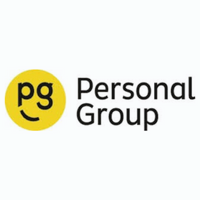The value of face-to-face support: how financial wellbeing can benefit from the human touch
For blue-collar workers in particular, face-to-face support, can open access to a whole range of products and services they either may not have properly understood, or thought were simply beyond their reach.
And for companies willing to go that extra mile, it allows them to continually improve and sense-check what they are offering by gaining real, heart-felt feedback from even the smallest segments of the market.
Protecting by connecting
For many years there has been an overwhelming assumption that financial wellbeing products were out of reach for most ‘normal’ people. Generous company pensions were for the few, not the many, and the cost of private medical insurance (PMI) was too much for all but the highest earners.
More recently, we have seen the whole market for these kinds of products shift. Pensions are now a universal requirement. Cash plans are a far more affordable alternative to PMI. Workers’ insurance and employee assistance programmes (EAPs) are there to provide everyone with peace of mind, no matter their budget.
And yet many still feel marginalised through a lack of knowledge or time, particularly blue-collar workers. Some may struggle to search for and find insurance products online. Those working non-standard hours, perhaps even night shifts, may lack the time to arrange and attend appointments around their working environment.
By coordinating with HR and visiting these people’s places of work, service providers can be far more inclusive in filling any knowledge gaps and sharing all the latest ideas around insurance, cash plans, online GP services, EAPs, cycle-to-work schemes, store discounting and voucher schemes.
Even a well-written email or push notification would struggle to explain all these things at the same time, and the simple fact is that engagement through an email will never achieve the same impact or longevity as a face-to-face session.
The human touch can help explain the products, and crucially, interlace them with the kind of personal context that identifies and activates within people a genuine need.
R&D – a path of constant improvement
When a business brings a financial product to the market, usually it does so either to keep up with the competition, or to satisfy a need that is being inadequately met. But how does it get to know that?
Looking more holistically at the life of a policy, there is huge benefit in maintaining touch points beyond the point of sale, through account creation, onboarding, and then training, ongoing feedback sessions and customer service.
Through this multi-phase approach customers gain and maintain the access and knowledge they need to engage with and value the services. And the service provider gains constant feedback and insight from the customer, both in a proactive setting and reactively as any claims or issues are met and dealt with.
Alongside the face-to-face contact, taking a dynamic and regular approach to MI (management information) is also important to this cycle of improvement.
By gathering, assessing and digesting this data, reviewing claims and complaints processes, listening to customer communications and constantly monitoring the value that products are bringing to the customer, companies can stay on top of any trends, scrutinise their resourcing and satisfy any shifts in regulatory requirements.
A unique focus on vulnerabilities
Finally, it is often only through direct face-to-face contact and broader focus groups that companies can begin to satisfy the needs of more niche, under-represented cross-sections in society, including those who are vulnerable.
For example, we have certainly seen a huge benefit to inviting in several charities who deal with bereavement and visual or hearing related impairments.
By talking with them about their general needs and asking specifically what the insurance market could do better to meet the needs of vulnerable people, we have been able to gain invaluable feedback and ultimately improve our offering.
Any business model that relies heavily on face-to-face contact may need to morph and evolve over time to meet new developments in the market and the ever-changing demand of the customer. For the moment, though, there is still very definitely a place for the human touch.
Supplied by REBA Associate Member, Personal Group
Personal Group provides the latest employee benefits and wellbeing products.








